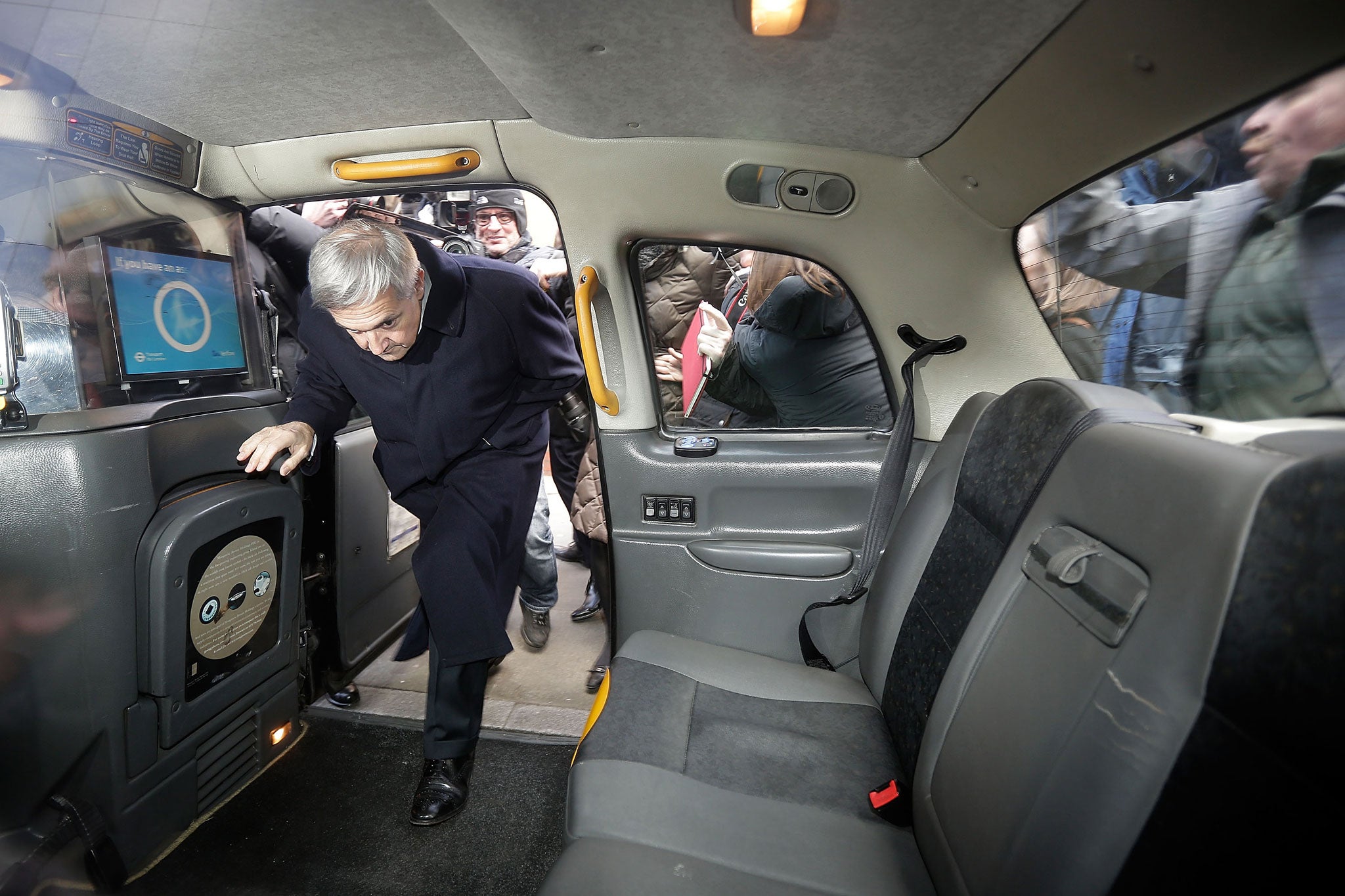As he and Vicky Pryce are jailed, Chris Huhne shows politicians should steer clear of driving
We expect our politicians to be blemish-free - so any misdemeanour can end a career

Road travel is risky at the best of times, but politicians have more to lose than most of us when taking up the driver’s seat. Sadly, Chris Huhne is only the latest to have come a cropper for crimes and misdemeanours behind the wheel.
The most notorious political road accident has to be Senator Edward Kennedy’s brush with death at Chappaquiddick in July 1969. What is a matter of record is that late one night, Kennedy’s car drove off a bridge near Martha’s Vineyard, and that the Senator escaped from the water below, while his passenger Mary Jo Kopechne drowned. Over ten hours passed before he reported the incident; and he only did so after he had been contacted about the car and Kopechne’s body had been found.
Numerous rumours circulated in the following days – including that he had been having an affair with Kopechne, and that he had been drunk behind the wheel and waited to ensure that the last traces of alcohol disappeared from his bloodstream. Kennedy denied them all vociferously, but even though his distinguished Senate career continued, his chances of ever becoming President were dealt a mortal blow.
Republicans opposing Kennedy’s re-election made sure that their attack ads came with a backing track of “Bridge Over Troubled Water”, while National Lampoon magazine ran a memorable spoof advert depicting a VW Beetle floating on water with the caption ”If Ted Kennedy drove a Volkswagen, he’d be President today.”
British MPs’ road mishaps have tended to be less sensational. The case which the Huhne-Pryce saga most brings to mind is that of colourful MP Sir Gerald Nabarro. In 1971, when he was charged with driving the wrong way around a roundabout in Totton, Hampshire, he insisted that his secretary had been at the wheel – although eyewitnesses disagreed. It is difficult to see quite how the distinctive MP, with his fulsome handlebar moustache and balding head, could have been mistaken for a long-haired woman at the wheel of his Daimler with the personalised numberplate “NAB 1”.
Other MPs have had brushes with the law over speeding. In pre-speed camera days, Alan Clark’s career survived numerous driving bans which covered everything from speeding to driving with a lady on his knee. Conversely, in the 1970s, police were tipped off about one “careful” drunk driver whose car was doing around two miles an hour; the incident was later written into an episode of Yes, Minister, although the writers refused to reveal the identity of the government minister involved.
The very first British politician to be closely identified with a motor car was Edwardian Prime Minister Arthur Balfour. Those were more genteel times: until 1896, a maximum speed limit of 4 mph was in place, and all cars had to be preceded by a small boy waving a red flag, to warn onlookers about the oncoming danger. Balfour’s government oversaw the Motor Car Act 1903, which introduced car registration and increased the speed limit from 14 mph to a recklessly thrill-seeking 25mph. In the 1920s, Winston Churchill also took driving lessons, but still relied on drivers to transport him; indeed, he piloted a plane more frequently than he drove a car.
The dangers of our roads brought about a memorable backlash in the form of Lieutenant Commander Bill Boaks, who tried to highlight the issue of road safety by standing against high-profile MPs in a string of elections in the 1970s and 1980s (and invariably coming last), as a “Public Safety Democratic Monarchist White Resident”. Ironically, Boaks himself later died in a road accident.
As cars grew faster and road networks more complex in the twentieth century, so the scope for mishaps increased, and with it, the danger to those in public life. It is little wonder Huhne was keen to evade a driving ban. We live in an age when every past misdemeanour is aired in attack leaflets from political opponents.
The political climate is so unforgiving that we actively encourage our politicians to present a blemish-free picture of themselves. That leaves aspiring politicians like Huhne with three options: cover-up of past misdemeanours, a lifetime of chauffeurs, or permanently using public transport.
And politicians daring to take the train may feel a pang of victimisation, given that the first person ever to be run over by a locomotive was the MP William Huskisson in 1830. In today’s era of bland, uncontroversial, risk-averse, indentikit politicians, what is an MP to do?
Join our commenting forum
Join thought-provoking conversations, follow other Independent readers and see their replies
Comments
Bookmark popover
Removed from bookmarks